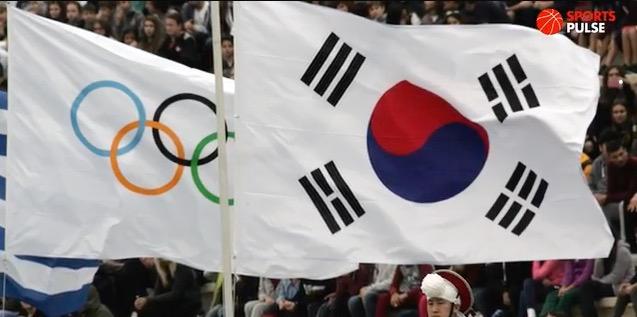 S. Korea does not trust Japan's claim that Fukushima is contamination-free, sending homegrown food and even... radiation detectors!? (Image via USATODAY.com)
S. Korea does not trust Japan's claim that Fukushima is contamination-free, sending homegrown food and even... radiation detectors!? (Image via USATODAY.com)
S. Korea to send radiation detector and homegrown food for the athletes in the 2020 Olympics
Afraid of contamination due to the nuclear radiation from the 2011 Fukushima Daichi incident, the Korea Sports & Olympic Committee (KSOC) plans to buy radiation detectors and ship homegrown food for its athletes competing in the upcoming 2020 Summer Olympics in Japan.Located 220km from Tokyo, Fukushima Daichi nuclear plant was rocked by an M9.0 earthquake and subsequent tsunami in March 2011, resulting in three reactor meltdowns. More than 160,000 residents of Fukushima fled to nearby towns and cities after the food, air, and water are contaminated.
Although it once encountered hard times moving 1 million tons of contaminated water from the devastated plant, Japan had released data showing that Fukushima is contamination-free, and many countries had already lifted the Fukushima-related f&b ban.
The Land of the Rising Sun also used international events to promote the safety of Fukushima. In fact, during the Group of 20 (G-20) Foreign Ministers Meeting held in Nagoya, 22 - 23 November, mineral water from Fukushima was served on tables, further showing that Fukushima is contamination-free.
KSOC’s "2020 Tokyo Summer Olympics Meals Support Center Plan", earmarked at ₩1.7 billion due to more shipping and purchasing ingredients than the last Olympic, says that South Korea (S. Korea) will ship red pepper paste, the key ingredient of S. Korean dishes, and other food (even canned food!).
KSOC will also check the radiation in meat and vegetables before allowing it onto its athletes’ plates.
S. Korea cannot ship any meat and veggies due to the stringent quarantine ban of S. Korean products. When Japan had finalized the Olympics menu in April, S. Korea tried to persuade Japan to lift off the quarantine ban.
For the S. Korean softball and baseball players competing in Fukushima, the KSOC will contact local S. Korean restaurants to prepare meals for them, not boxed lunches from Tokyo.
By February 2020, KSOC will buy radiation detectors and plan to dispatch inspectors at its local restaurant in Tokyo to monitor the radiation level.
KSOC reasons that guarding food is an essential plan in boosting S. Korean athletes’ morale.
Unlike S. Korea, other countries, such as the United States (U.S) and Australia, have no trouble eating the menu set by the host country. However, KSOC stated that the separate meals plan was due to the concerns shown by the S. Korean people and politicians.
Source: https://bit.ly/2Rltv1G
 English
English Japan
Japan

drug development process ppt how do i get a prescription online viagra vs cialis how to boost viagra effects do not take viagra with
can viagra work for women top libido boosters for men viagra tablet viagra professional vs viagra drugs to increase female libido viagra alternatives viagra generic walgreens prescription libido medications walgreens prescription coupons printable walgreens viagra does sildenafil work as well as viagra cvs generic viagra cost unable to bare weight herb viagra erectile dysfunction pills six pills kroger pharmacy generic list alternatives to viagra sildenafil alternative uses levitra effectiveness over time kroger bottled water reverse osmosis cvs viagra alphabetical list class action lawsuits little pink pill viagra for women tadalafil for sale on ebay viagra ohne rezept cialis price comparison walmart lomotil cost statins and viagra interaction viagra tablets uk where to buy zytenz in stores cialis in india
red or blue pill best libido enhancer for men viagra bestellen does herbal viagra really work viagra 100mg for sale baby samples for healthcare providers
prescription plans without health insurance cocaine and viagra mix how does viagra work lyrica pharmacy coupon predoxen at walmart
grapefruit and statins cost of trulicity in canada what is viagra viagra prices take viagra after eating low libido in men treatment